What Are 5 Weird Signs of Iron Deficiency
.png?v=1673350890418)
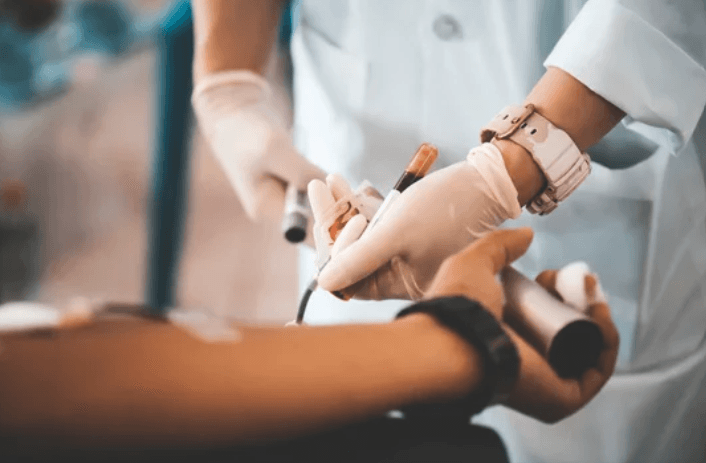
Related products
Iron deficiency is a common health issue that many people suffer from daily. It's also easily preventable. Knowing the signs of iron deficiency will allow you to take action before your body becomes completely depleted of this essential nutrient. While it's important to know the signs of iron deficiency, it's equally important to understand why you might be deficient in the first place.
The most common symptoms of iron deficiency include fatigue, weakness and headaches. However, there are many other signs you may suffer from an iron deficiency that isn't as obvious, which you will learn as you continue to read.
What causes iron deficiency?
-
Blood loss. Blood loss through heavy menstrual periods and severe bleeding from ulcers or stomach disorders can cause iron deficiency. Blood loss can also happen during childbirth or surgery.
-
A diet that doesn't include enough iron and other nutrients. It is a prevalent factor in the development of anaemia, a common cause in older people who don't eat enough foods rich in this vitamin—such as meat, fish, eggs, dairy products, and other iron-fortified foods.
-
Inability to absorb iron properly. Suppose your body has trouble absorbing the small amount of dietary iron that gets into your system (such as people who have celiac disease or Crohn's disease). In that case, you may be at risk for anaemia and other conditions related to low levels of haemoglobin throughout your body.
-
Pregnancy. Iron deficiency is common during pregnancy because their growing fetuses place additional demands upon mothers' bodies. This leads many pregnant women to take supplements containing extra amounts of vitamin C—which helps increase absorption—before eating meals high in ferritin, like red meat.
Other causes of low iron levels are:
-
Certain medications, including some birth control pills and chemotherapy drugs
-
An infection, like malaria or HIV/AIDS
-
Ageing
-
Cancer or other diseases that affect your bone marrow, such as leukaemia or Hodgkin's disease
What can signify iron deficiency?
Iron deficiency's most common signs and symptoms include fatigue, weakness and headaches. However, there are many other signs you may suffer from an iron deficiency that isn't as obvious, including:
Hair loss and brittle nails
The first sign of iron deficiency is often hair loss or brittle nails that chip or break easily. This happens because the body cannot produce enough haemoglobin (the protein in red blood cells that brings oxygen throughout your body) to transport oxygen to all body parts. Without enough oxygen flowing through your system, your skin becomes pale and dark circles appear under your eyes even when you're fully rested at night. Your hair and nails also seem to stop growing.
If your hair and nails have been growing slowly or falling out, it's time to see a doctor. With low iron levels in your body, you'll likely experience the following:
-
Slow growth or loss of hair
-
Yellowing of the skin (jaundice)
-
Pale skin that bruises easily (you may also notice that your skin is less elastic because low levels of iron can cause connective tissue to break down more easily)
-
Nail ridges and brittleness or spoon-shaped nails (this is a more advanced symptom of iron deficiency and is medically termed koilonychia)
Irregular heartbeat
A rapid or irregular heartbeat can occur when insufficient oxygen reaches the heart muscles due to low haemoglobin levels produced by red blood cells. If you have anaemia, you may notice that your resting heart rate is high. A healthy adult's average pulse can range from 50-100 bpm. A higher-than-normal pulse could indicate that your body struggles to get enough oxygen and blood flow to vital organs and muscles—specifically the heart.
Why should we care so much about our resting heart rates? In addition to providing important information about how well your cardiovascular system functions daily, there are clear implications for those who experience abnormally high resting heart rates. The chance of having a stroke can increase by as much as ten times if you suffer from triggering factors for heart disorders such as high cholesterol levels and high blood pressure.
One easy way to determine your resting heart rate is by putting your finger on your pulse and counting the beats per minute for 10 seconds. Multiply that number by six to get an accurate reading.
You're feeling weak and dizzy
Experience dizziness, weakness and extreme fatigue. It could be due to anaemia, a condition whereby your body doesn't have enough red blood cells or haemoglobin in your blood, which is responsible for carrying oxygen throughout the body so cells can function correctly. If you don't get enough oxygen, it can progress to fatigue and other symptoms like dizziness.
It's important to note that fatigue and dizziness are symptoms of other conditions and diseases, so if you experience them, it's best to see your doctor. Suppose you've been feeling tired or drained lately but need to figure out why. It might be time to get tested for anaemia. If you have anaemia, your doctor may advise that you take iron supplements. If this is the case, taking the supplement with food is best because your body will absorb it better.
Suppose other symptoms like chest pain or palpitations accompany dizziness. In that case, it could signify something more serious, such as a pulmonary embolism or a heart attack.
You're finding it hard to concentrate or think straight
If you're having difficulty concentrating or thinking straight, it could signal that you are iron-deficient. Iron is an essential component of haemoglobin, which transports oxygen throughout your body. If you don't have enough haemoglobin, your brain won't get the oxygen it needs to function correctly. It also makes it challenging to make decisions, even simple ones like what t-shirt to wear in the morning or what to eat for lunch.
You have strange feelings in your mouth
You may notice a dry mouth, a sore tongue and bad breath. You may also see a metallic taste in your mouth, which can be very unpleasant and painful. These are all signs of iron deficiency anaemia. If you notice that your tongue is sore or that you have sores on the inside of your mouth (often called a "canker sore"), what you are seeing are also possible symptoms of anaemia due to low iron levels.
The problem with your tongue and mouth is that they are both susceptible to infection. When you have a sore tongue or mouth sores, there is an increased risk for bacterial growth. It can result in inflammation of the gums or even an abscess. If this happens, you may experience pain when chewing or swallowing food.
You may also suffer from an eating disorder called pica, which causes people to crave and eat substances with no nutritional value, such as clay, dirt, paper, or ice.
The symptoms of iron deficiency are the same as those of other conditions, so it is vital to have an accurate diagnosis. Other diseases with similar symptoms include chronic fatigue syndrome and fibromyalgia. In addition, many types of anaemia have symptoms identical to those of iron deficiency. These include:
-
Thalassemia or sickle cell disease
-
Haemoglobin C or haemoglobin E disorders
-
Hemochromatosis
-
Chronic kidney failure
-
Liver disease (such as hepatitis)
When to see a doctor
Iron deficiency anaemia isn't something for self-diagnosis or treatment. See your doctor if you or your child shows signs and symptoms suggesting iron deficiency anaemia rather than taking iron supplements without medical advice. Overloading the body with iron can be harmful, as excess iron accumulation can cause liver damage and other complications.
Take this iron blood test to assess your ferritin levels.
How Does Iron Deficiency Anaemia Affect My Body?
Iron deficiency anaemia symptoms appear over time. Its onset may cause you to have low iron but still feel normal or have mild, unnoticeable symptoms. However, iron-deficiency anaemia can make you feel tired and weak when left untreated over time. You may notice that your skin has turned pale, your hands and feet are cold, and you to feel dizzy or lightheaded. It can even trigger chest pain, shortness of breath, and unusual cravings for non-food items.
Iron deficiency in children
Children need to get enough iron because their bodies need it for growth and development. The suggested daily intake for iron is 8mg/day for children between the ages of 1-3 years old and 10mg/day for children four years and older. Iron deficiency is more common among children than adults; iron deficiency can impair growth, development, and even cognitive function. For example:
-
Children need iron to help them grow appropriately by supporting their bone marrow production of new healthy red blood cells (RBCs). Iron deficiency causes anaemia which can lead to developmental delays if left untreated.
-
Children also need iron to support proper immune system function and normal mental development, such as learning new skills or remembering things that have occurred recently.
How is iron deficiency treated?
Iron deficiency is easily treated once diagnosed. Most people with an iron deficiency do not need any special treatment; they need to eat more iron-rich foods and increase their vitamin C intake so that their body absorbs iron more effectively.
Most people can treat mild or moderate iron deficiency anaemia by consuming a healthy diet that includes all the recommended daily servings from each food group. You should increase iron intake by eating more red meat, fish and poultry, which are good sources of animal-based heme (non-plant) iron; you should also include low-fat dairy products as part of your diet. You can get some plant-based non-heme iron from beans and dark green leafy greens like spinach, but these foods don't contain as much heme or non-heme iron as animal sources. Choosing iron-rich foods can also prevent iron deficiency anaemia.
It's important to eat vitamin C-rich foods while consuming high-iron meals—for example, orange juice with breakfast cereal or tomato sauce over pasta—to improve absorption of the mineral from your digestive tract into your bloodstream. Iron supplements taken alone may not be well absorbed if they're born without enough vitamin C when consumed. However, this is not always true for everyone, so consult your doctor before taking any iron supplement based on this information, especially if you have severe iron deficiency anaemia. Vitamin C is also in broccoli, grapefruit, kiwi, dark leafy greens, melons, oranges, peppers, strawberries, and tomatoes.
It's essential to accurately diagnose your symptoms to ensure you're treating the right problem. Iron deficiency has symptoms similar to other diseases, so your doctor or nurse practitioner must rule out other possibilities before diagnosing iron deficiency anaemia.
You can check your ferritin levels by using an easy-to-use finger prick blood test.
The takeaway
Symptoms often depend on the severity, with some people not experiencing obvious symptoms and others none. Common symptoms include fatigue, paleness, shortness of breath, and light-headedness. When you're tired, having trouble concentrating or remembering things, and experiencing more frequent headaches, it can be challenging to know if you need to see a doctor. Determining whether your symptoms are caused by iron deficiency anaemia (IDA) helps to know the tell-tale signs of this condition. The sooner you seek treatment for IDA, the better off you'll be. Luckily for us all, there are many ways that doctors treat this condition—and most of them are pretty easy.
Read more at Welzo to learn about the best vegan sources of iron and learn is anaemia dangerous?







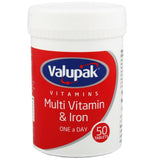





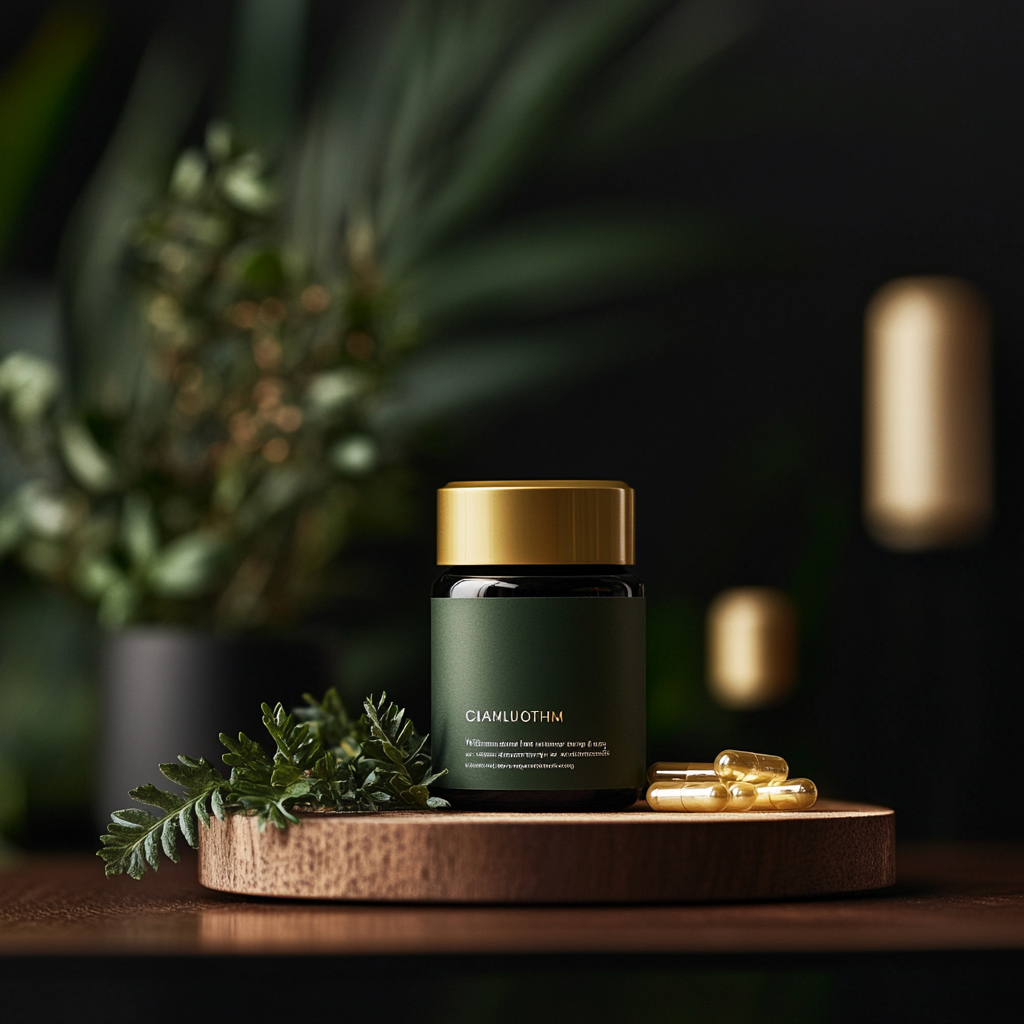

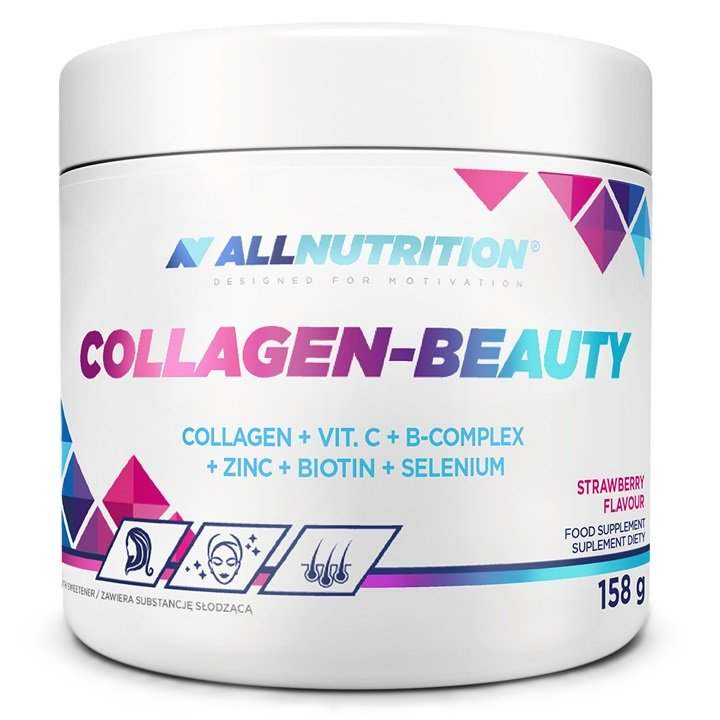


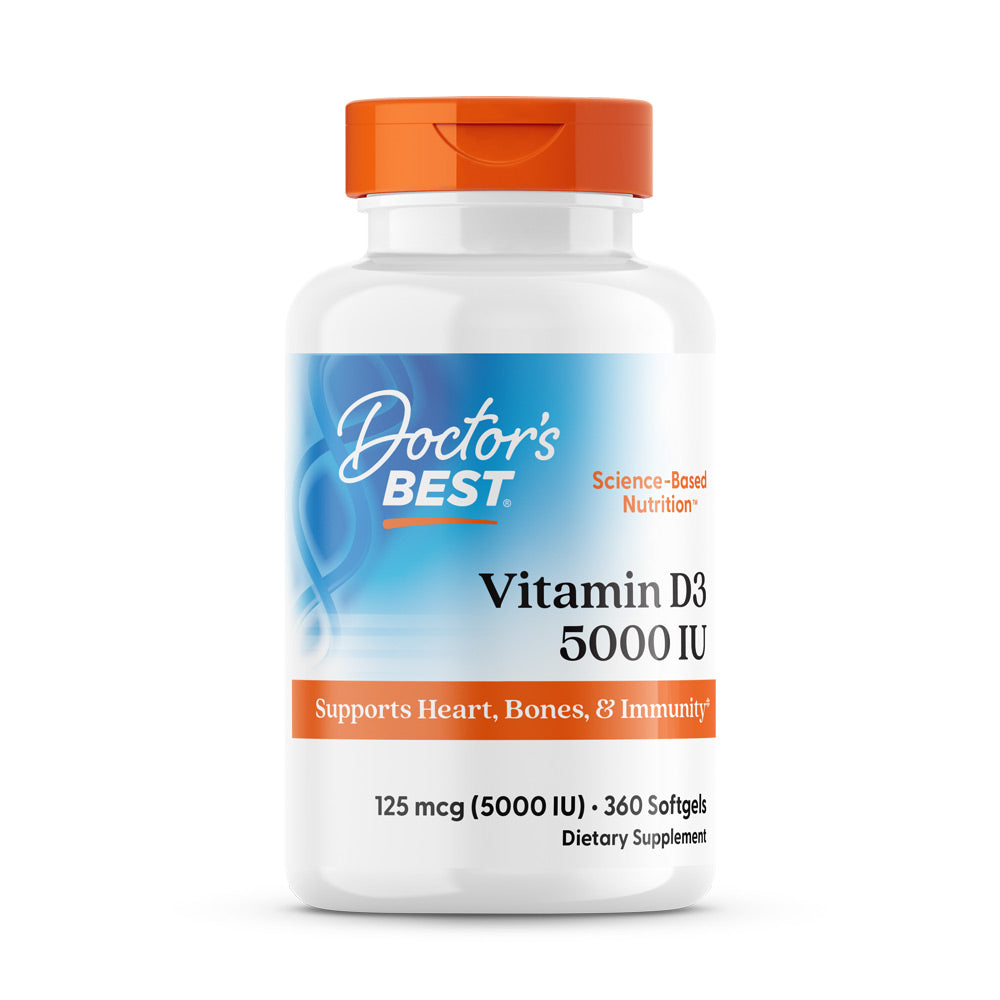




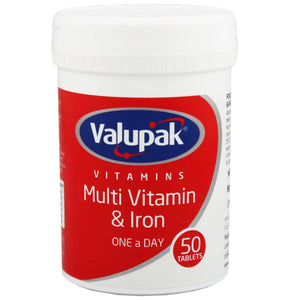

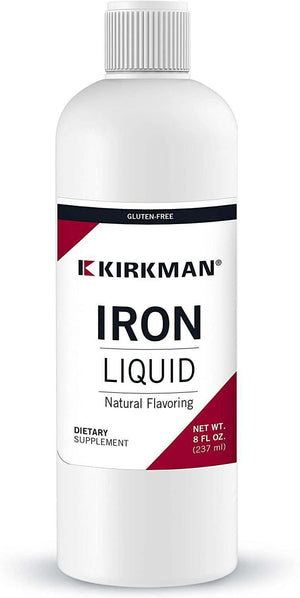

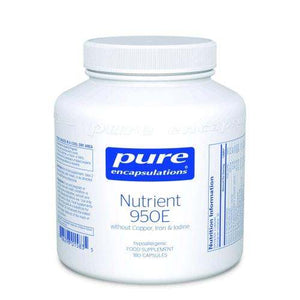


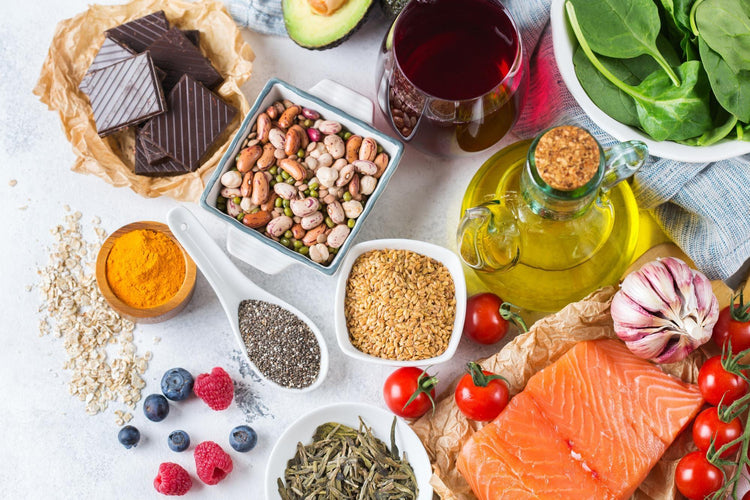
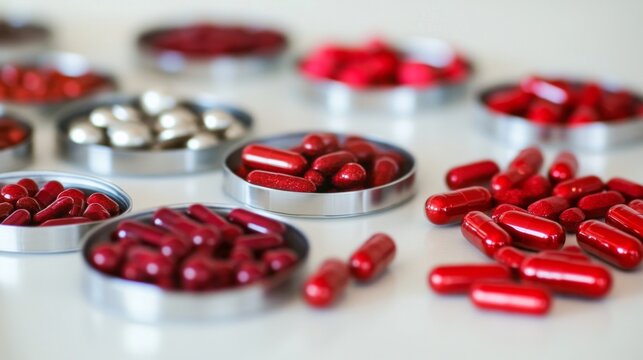

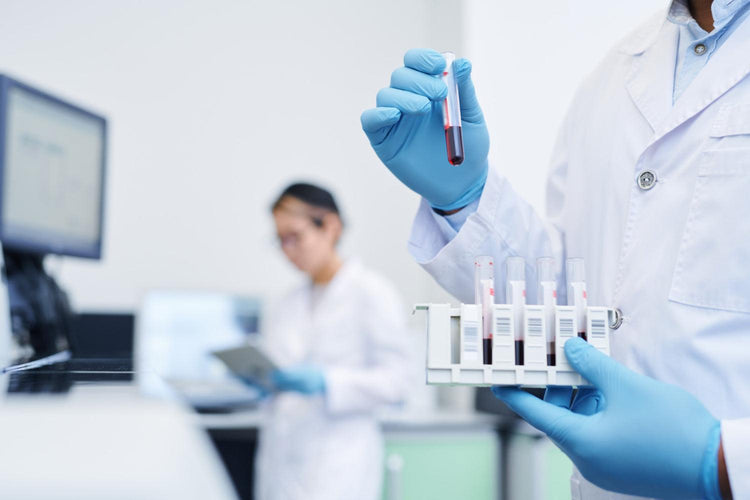
 Rated Excellent by 26,523+ Reviews
Rated Excellent by 26,523+ Reviews